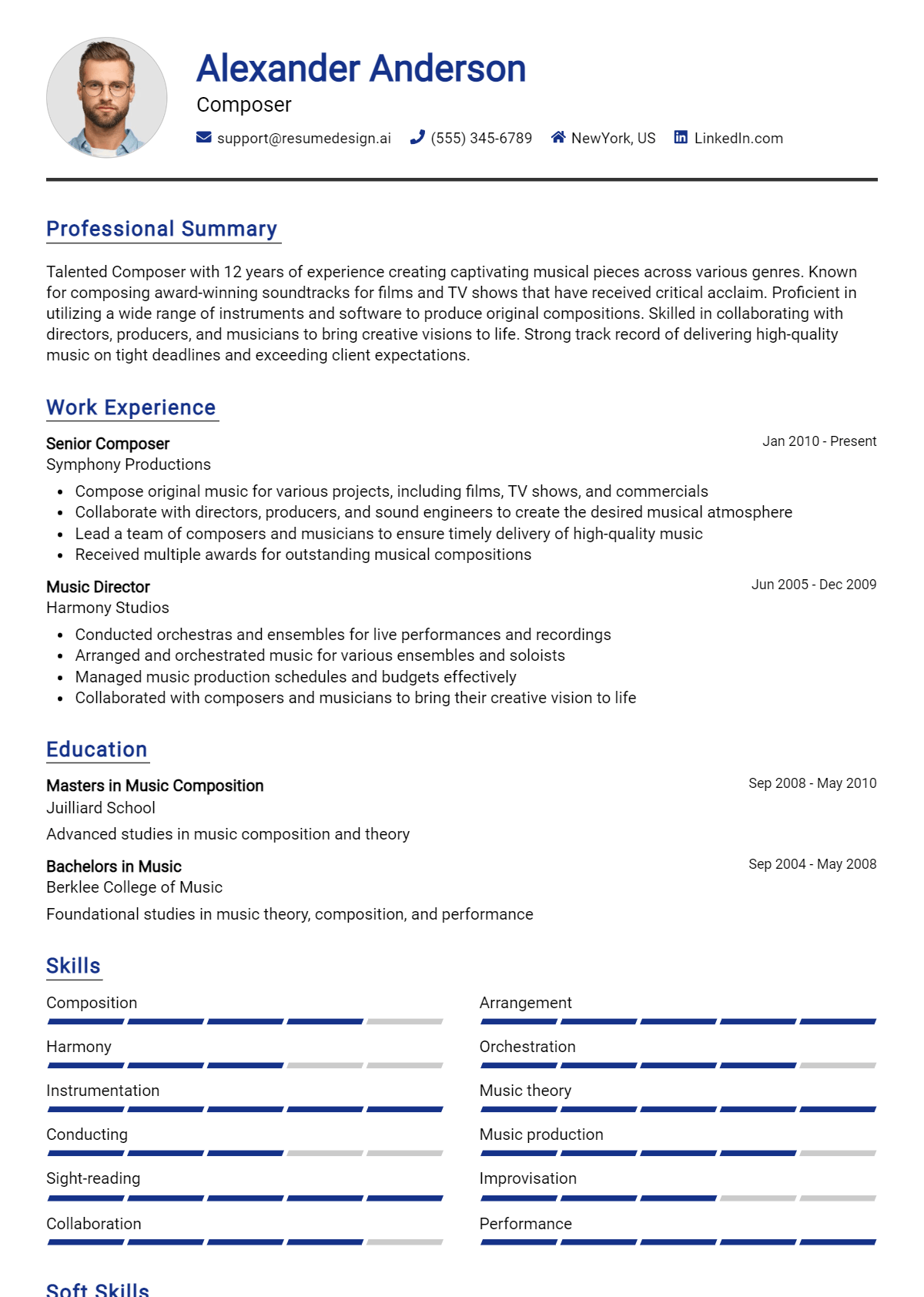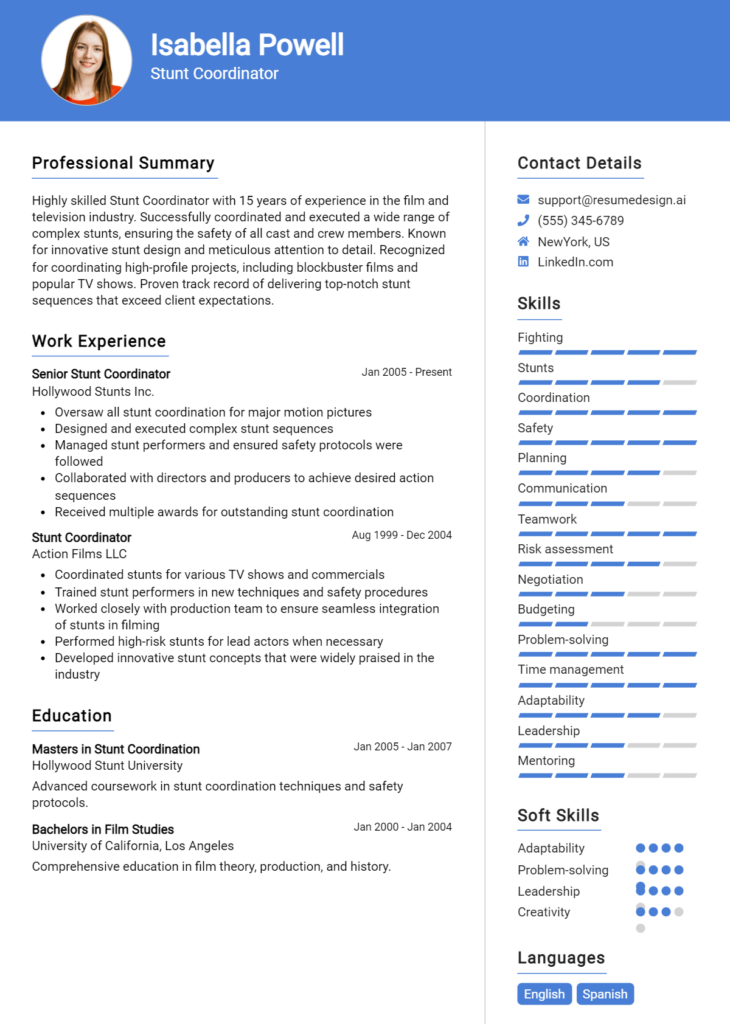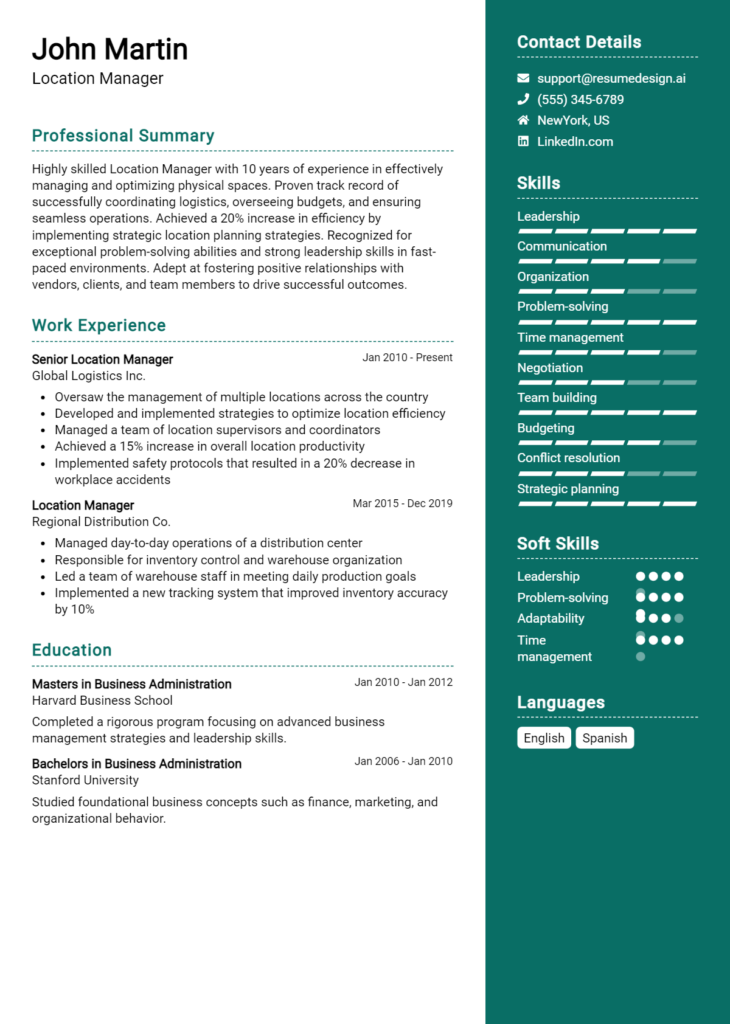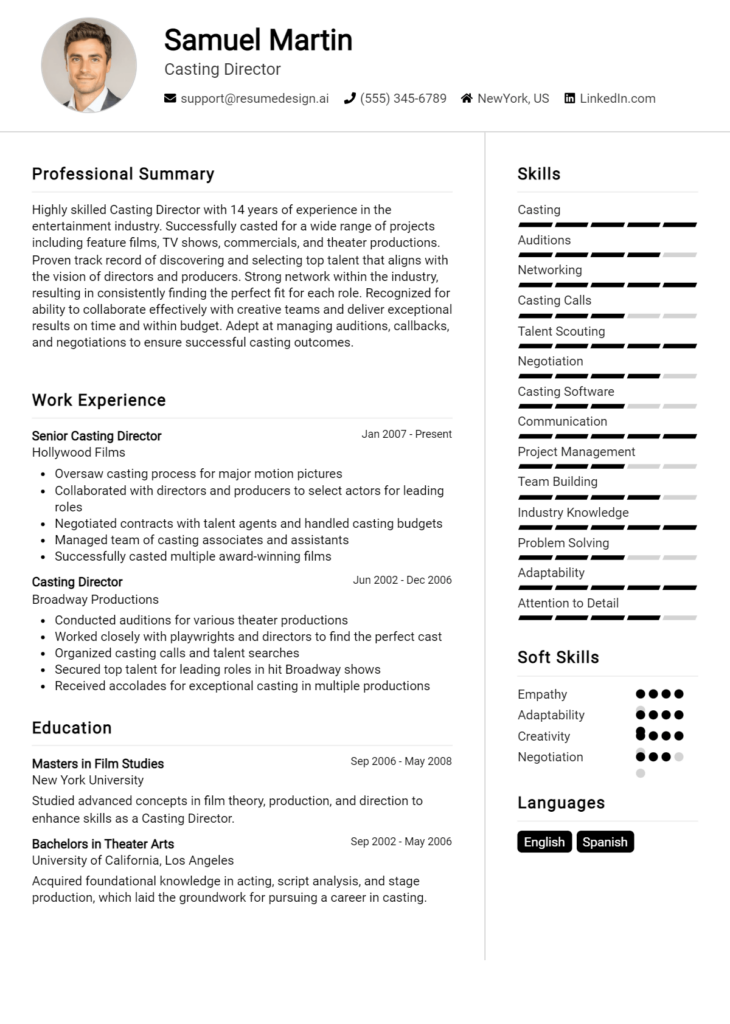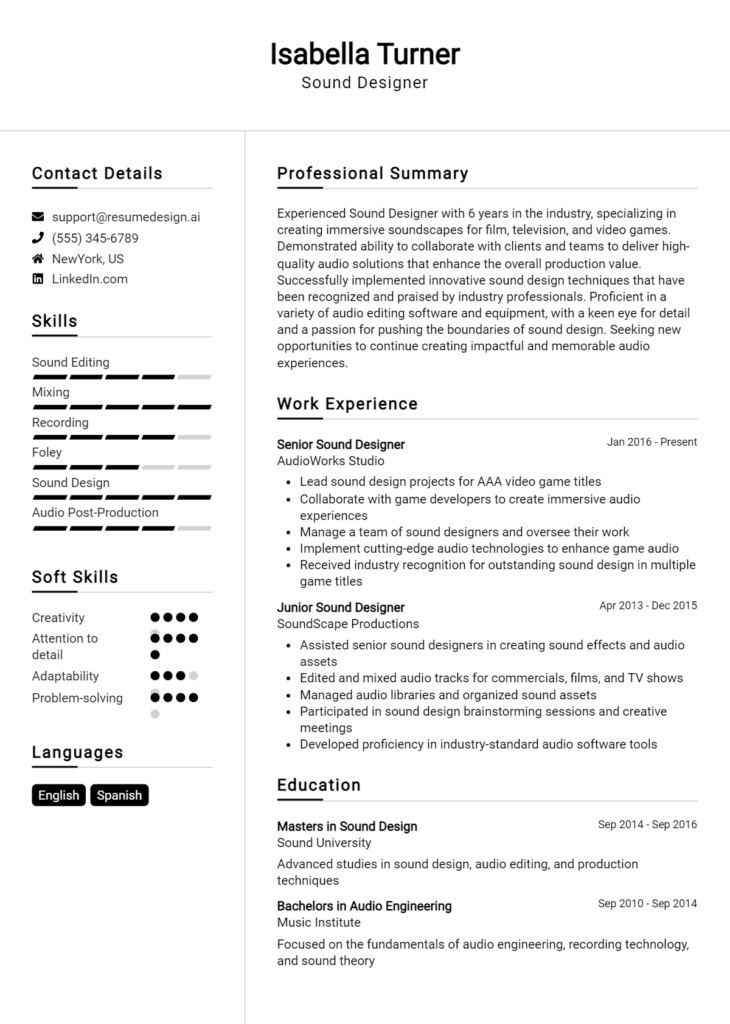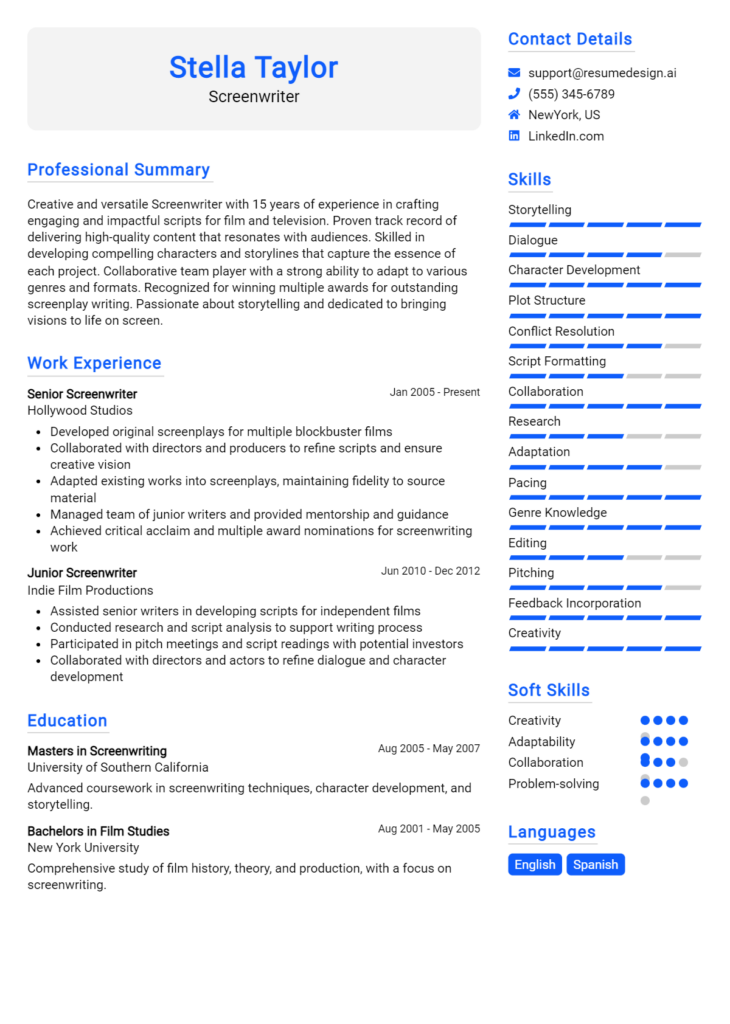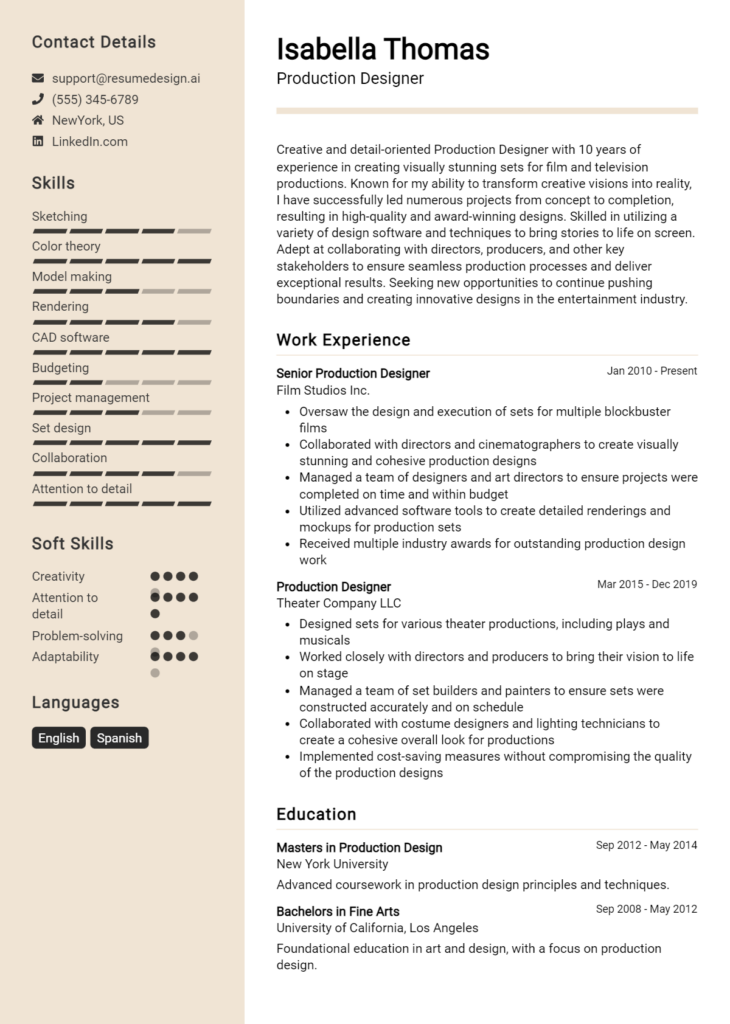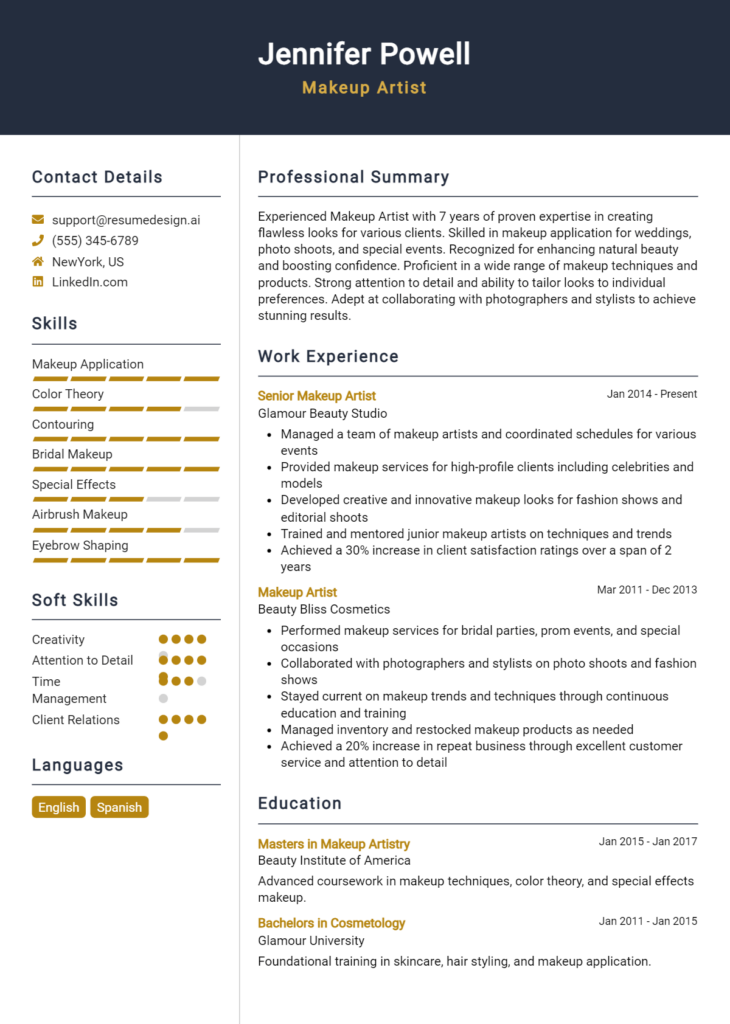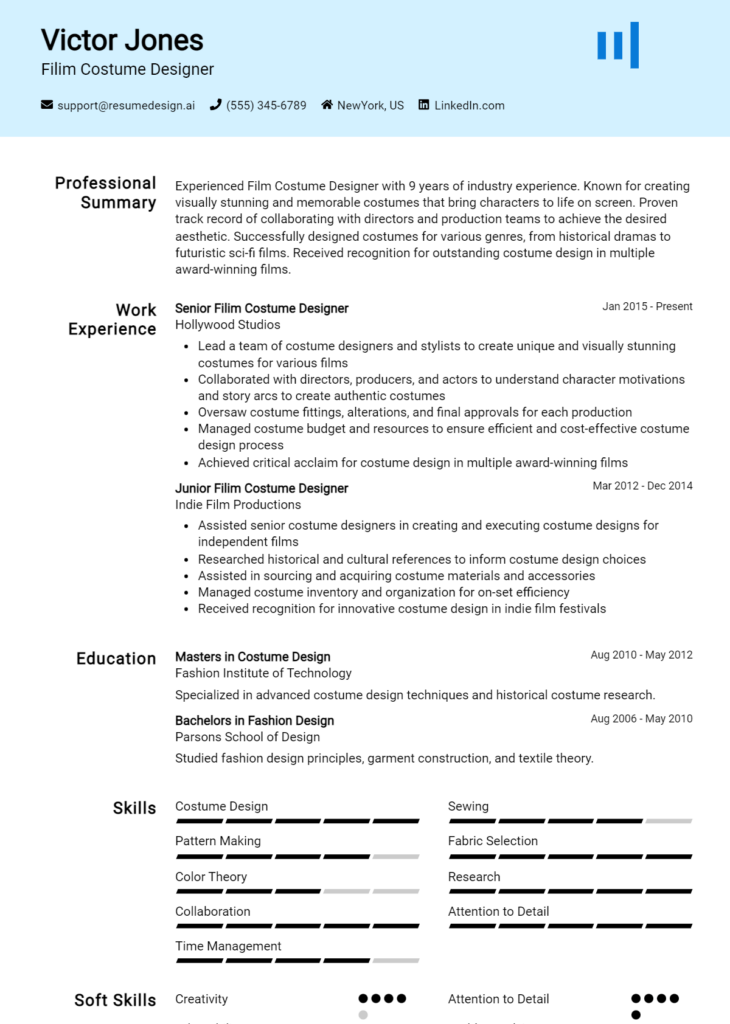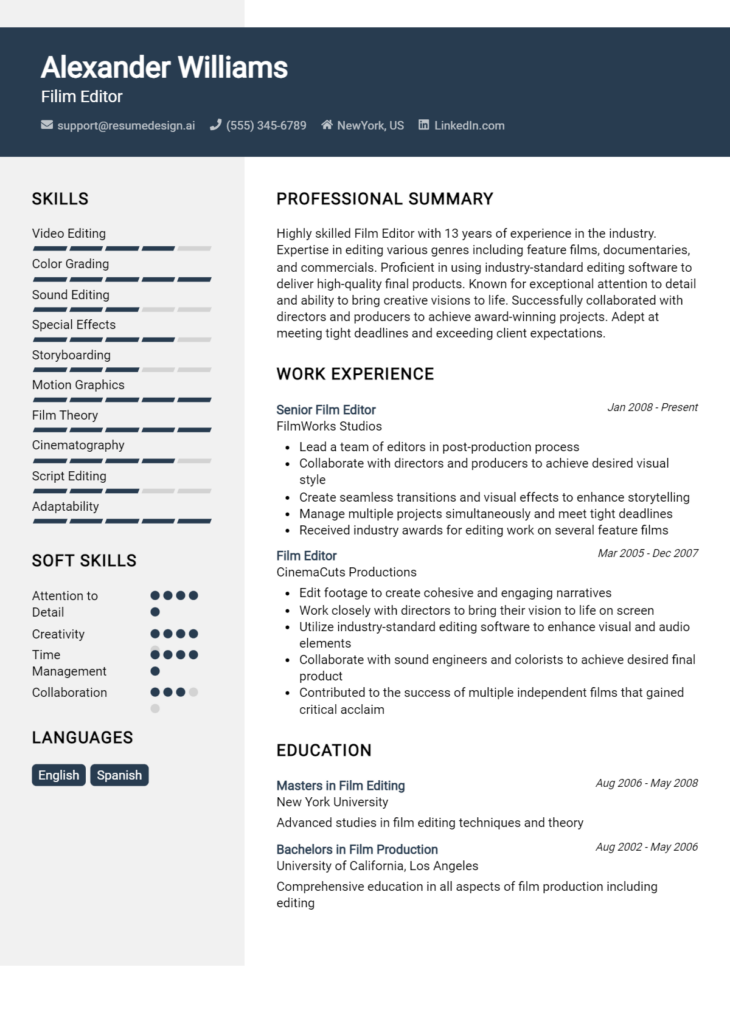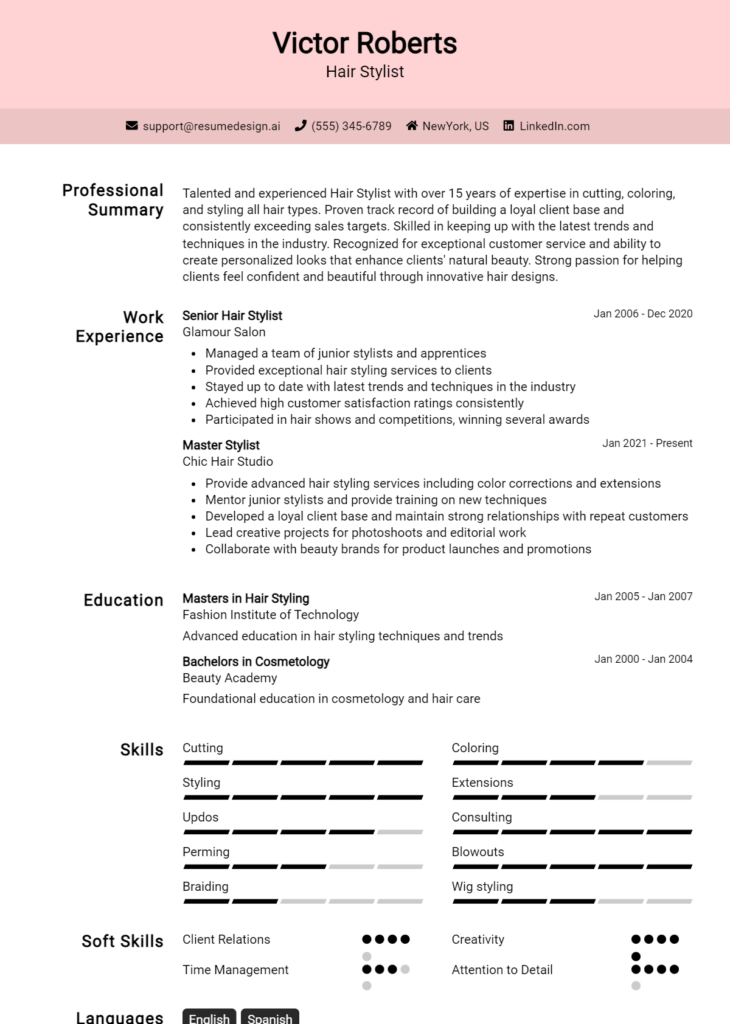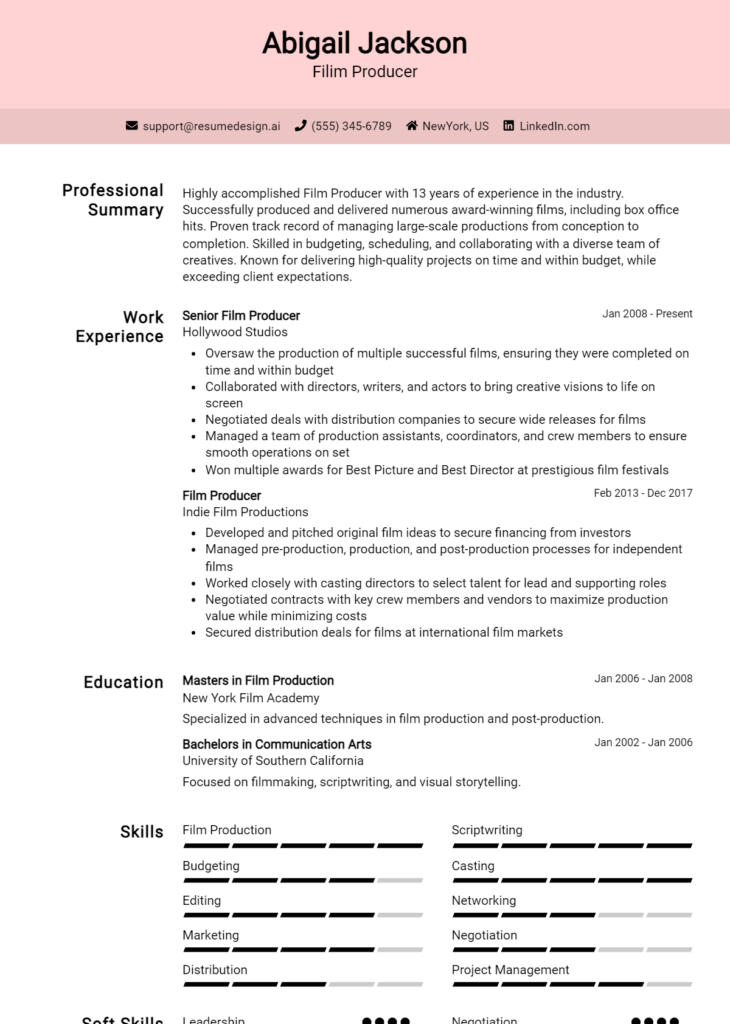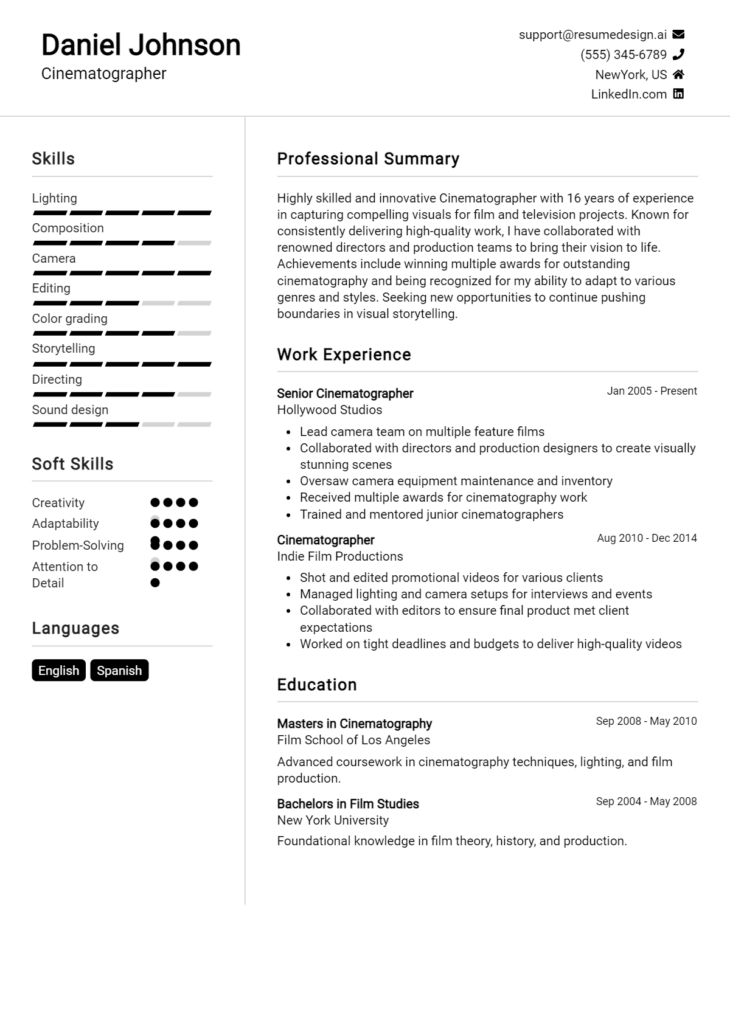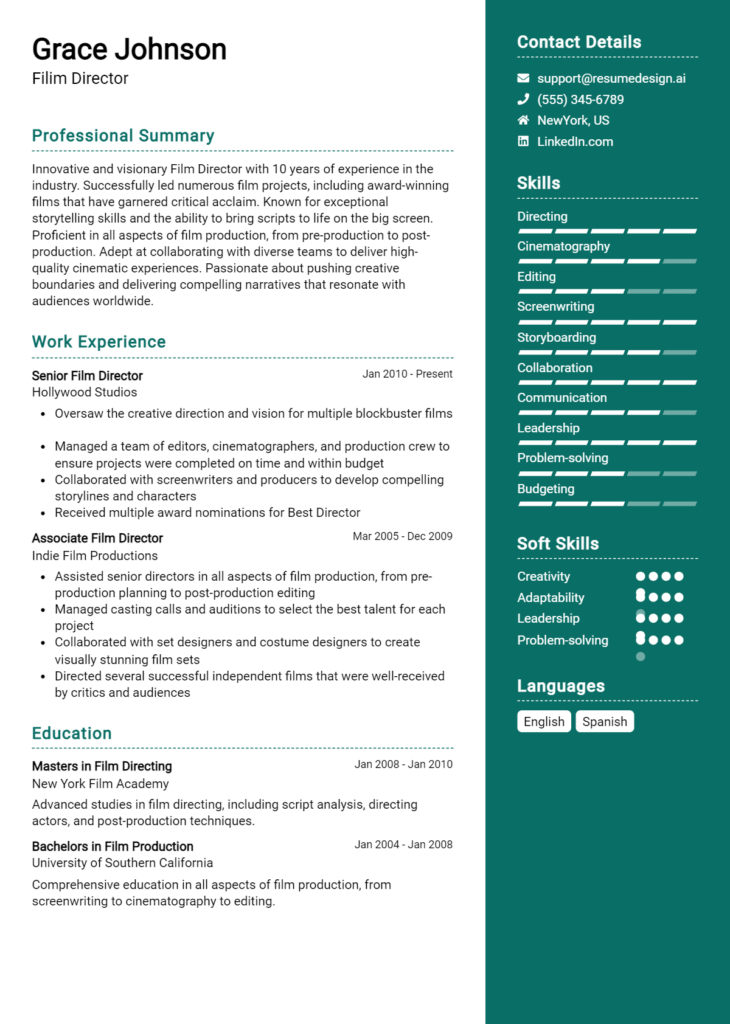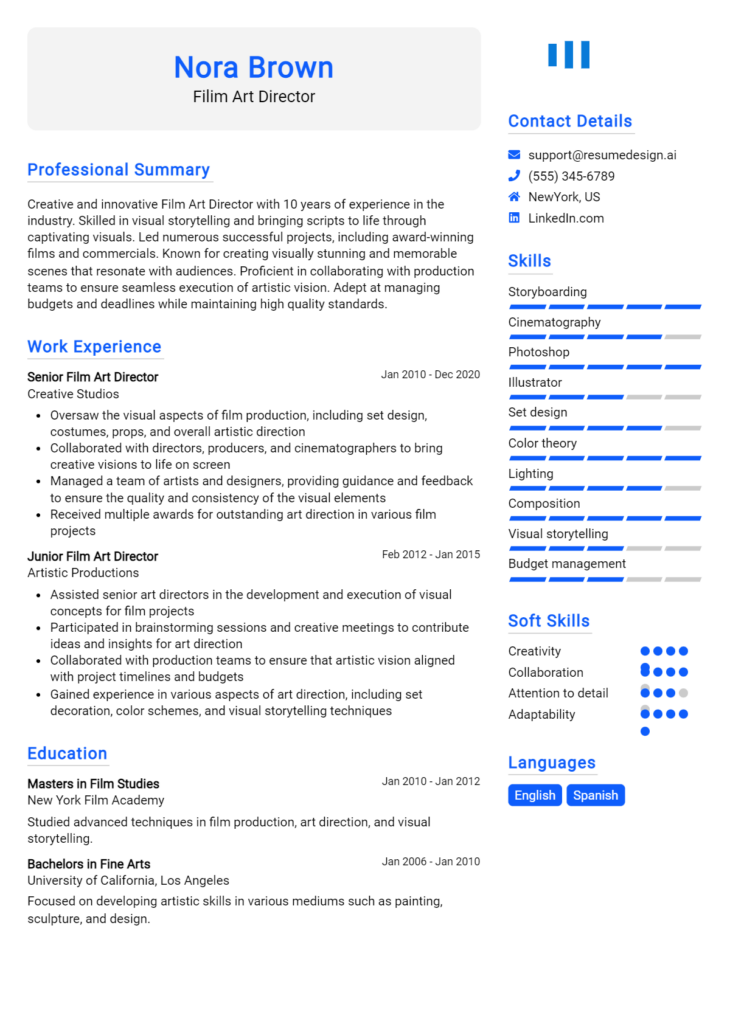Composer Core Responsibilities
A Composer plays a vital role in bridging various departments, such as production, sound engineering, and marketing, to create compelling musical scores. Key responsibilities include composing original music, arranging scores, and collaborating with directors and producers. Successful Composers possess strong technical skills in music theory and software, operational abilities for project management, and problem-solving skills to address creative challenges. These competencies contribute to the organization's artistic vision, and a well-structured resume can effectively highlight these qualifications to prospective employers.
Common Responsibilities Listed on Composer Resume
- Compose original music for film, television, and theater productions.
- Arrange and orchestrate musical scores for various ensembles.
- Collaborate with directors and producers to align music with creative vision.
- Conduct rehearsals and coordinate with musicians and sound engineers.
- Incorporate feedback from stakeholders to refine compositions.
- Manage project timelines and budgets for musical productions.
- Utilize music composition software and recording technology effectively.
- Stay updated on industry trends and emerging musical styles.
- Supervise and mentor junior composers or interns.
- Prepare sheet music and conduct notation for performances.
- Perform music live or in recordings as needed.
- Network with industry professionals to explore collaboration opportunities.
High-Level Resume Tips for Composer Professionals
In the competitive world of music composition, a well-crafted resume is essential for standing out to potential employers. Your resume is often the first impression you make, serving as a reflection of your skills, creativity, and achievements in the field. It's not just a list of jobs; it's a storytelling tool that showcases your unique musical journey and the value you bring to a project. This guide will provide practical and actionable resume tips specifically tailored for Composer professionals, helping you to articulate your expertise and make a lasting impact on hiring managers.
Top Resume Tips for Composer Professionals
- Tailor your resume to each job description by incorporating relevant keywords and phrases that align with the specific requirements of the position.
- Highlight your relevant experience, including specific projects, collaborations, and notable performances, to provide context for your skills.
- Quantify your achievements where possible, such as the number of compositions produced, awards won, or clients served, to demonstrate your impact in concrete terms.
- Include a dedicated skills section that showcases industry-specific abilities, such as proficiency with music software, instrumentation, and composition techniques.
- Utilize a clean and professional design that reflects your artistic sensibility while ensuring clarity and readability.
- Incorporate links to your portfolio or samples of your work, allowing employers to experience your compositions firsthand.
- Showcase any relevant education or training, including degrees, certifications, and workshops that enhance your credibility as a composer.
- Use action verbs to describe your roles and contributions, ensuring your resume communicates your proactive approach to music composition.
- Keep your resume concise, ideally one page, focusing on the most pertinent experiences and achievements that align with the job you are applying for.
- Consider including testimonials or endorsements from industry peers to add a personal touch and further validate your expertise.
By implementing these tips, you can significantly enhance your resume and increase your chances of landing a job in the Composer field. A well-structured resume will not only highlight your qualifications but also convey your passion for music composition, making it more likely that hiring managers will take notice and invite you for an interview.
Why Resume Headlines & Titles are Important for Composer
In the competitive field of music composition, the first impression you make on hiring managers can significantly influence your career trajectory. A well-crafted resume headline or title serves as a powerful tool, immediately capturing attention and summarizing your key qualifications in a single impactful phrase. This concise and relevant statement is designed to resonate specifically with the job being applied for, making it easier for hiring managers to recognize your potential value at a glance. A strong headline not only sets the tone for the rest of your resume but also distinguishes you from other candidates, making it an essential element of your application.
Best Practices for Crafting Resume Headlines for Composer
- Keep it concise: Aim for one impactful phrase, ideally under 10 words.
- Be specific: Tailor the headline to reflect the specific role or genre you're targeting.
- Highlight key skills: Incorporate important skills or specialties relevant to composing.
- Use strong action words: Choose dynamic verbs that convey creativity and expertise.
- Emphasize achievements: If applicable, mention notable accomplishments or experiences.
- Stay relevant: Ensure your headline aligns with the job description and requirements.
- Express your unique style: Infuse your personality or distinctive approach to music composition.
- Avoid jargon: Use clear language that is easily understood by hiring managers.
Example Resume Headlines for Composer
Strong Resume Headlines
Award-Winning Film Composer with 10+ Years of Experience
Innovative Music Creator Specializing in Orchestral Arrangements
Versatile Composer: Blending Classical Techniques with Modern Genres
Dynamic Soundtrack Composer with Proven Success in Film Scoring
Weak Resume Headlines
Composer Looking for Opportunities
Music Professional
Experienced Musician
The strong resume headlines are effective because they immediately communicate specific qualifications, expertise, and a clear focus on the desired role. They showcase the candidate's unique strengths and accomplishments, making a memorable impression. In contrast, the weak headlines fail to impress due to their vagueness and lack of specificity, which do not provide hiring managers with any substantial information about the candidate's skills or suitability for the position. A strong headline sets a confident tone, while weak ones leave potential employers indifferent.
Writing an Exceptional Composer Resume Summary
In the competitive field of composition, a well-crafted resume summary is crucial for composers seeking to make an impactful first impression on hiring managers. This brief yet powerful section of a resume serves as a hook, quickly capturing attention by highlighting key skills, relevant experience, and notable accomplishments related to the job role. A strong summary should be concise and impactful, tailored to reflect the specific requirements of the position being applied for, ultimately setting the stage for the rest of the resume.
Best Practices for Writing a Composer Resume Summary
- Keep it concise: Aim for 2-4 sentences that encapsulate your core strengths.
- Quantify achievements: Use numbers and metrics to showcase your impact and success.
- Focus on key skills: Highlight specific skills that are relevant to the job description.
- Tailor for the job: Customize your summary to reflect the requirements and responsibilities of the position.
- Use strong action verbs: Start with powerful verbs to convey confidence and proactivity.
- Showcase unique selling points: Emphasize what sets you apart from other candidates.
- Avoid jargon: Use clear and accessible language that can resonate with a broad audience.
- Reflect your passion: Infuse your summary with your enthusiasm for music and composition.
Example Composer Resume Summaries
Strong Resume Summaries
Dynamic composer with over 8 years of experience in film scoring, successfully collaborating on 15 award-winning projects that grossed over $20 million. Expert in orchestration and digital music production, with proficiency in Logic Pro and Sibelius.
Creative music composer specializing in contemporary classical and electronic genres, with 10+ years of experience in live performance and studio recording. Recognized for composing a track that received over 1 million streams on Spotify within 6 months of release.
Accomplished composer with a background in jazz and orchestral music, having arranged and conducted over 30 performances for regional symphonies. Proven track record of increasing audience engagement by 25% through innovative programming.
Weak Resume Summaries
I am a composer with experience in various music styles. I have worked on many projects and am good at using music software.
Passionate about music composition and looking for opportunities to create. I have some experience and skills in music.
The examples provided illustrate the key differences between strong and weak resume summaries. Strong summaries are specific, quantifiable, and tailored to the role, showcasing the candidate's unique skills and achievements. In contrast, weak summaries lack detail, fail to highlight significant accomplishments, and come across as generic, making it difficult for hiring managers to assess the candidate's qualifications effectively.
Work Experience Section for Composer Resume
The work experience section of a Composer resume is crucial as it serves as a window into the candidate's technical skills, ability to manage teams, and success in delivering high-quality musical products. This section not only showcases a composer's creative capabilities but also emphasizes their experience in collaborating with various stakeholders and leading projects to fruition. Quantifying achievements, such as number of compositions produced, collaborations undertaken, or awards won, allows candidates to stand out by demonstrating their impact in the industry. Aligning work experience with industry standards further solidifies a candidate’s value, making it essential to present this section thoughtfully and strategically.
Best Practices for Composer Work Experience
- Highlight specific technical skills relevant to composition, such as proficiency in music software or knowledge of various musical genres.
- Quantify achievements, using metrics like the number of compositions completed, audience size at performances, or sales figures for albums.
- Showcase collaboration with other artists, producers, and teams to illustrate teamwork and leadership abilities.
- Include notable projects or commissions that align with the standards of the industry, emphasizing your role and contributions.
- Use action verbs to describe your experiences, making your involvement clear and impactful.
- Tailor your work experience to reflect the specific requirements of the job you are applying for, demonstrating a clear fit.
- Mention any awards or recognitions received for your compositions to highlight your credibility and success.
- Keep descriptions concise yet detailed enough to convey the significance of your contributions.
Example Work Experiences for Composer
Strong Experiences
- Composed and produced a full orchestral score for a major motion picture, resulting in a 20% increase in box office revenue and receiving a nomination for the Best Original Score.
- Led a team of five musicians in a live concert series that attracted over 5,000 attendees, receiving rave reviews from critics and generating $50,000 in ticket sales.
- Collaborated with renowned artists on a Grammy-nominated album, contributing to three tracks that collectively reached over 1 million streams on digital platforms.
- Developed an innovative music education program that increased student engagement by 30%, leading to a 15% boost in enrollment in the participating institution.
Weak Experiences
- Worked on various music projects.
- Involved in team compositions and arrangements.
- Participated in several concerts and events.
- Helped out with music production tasks.
The examples categorized as strong experiences are deemed so because they clearly articulate quantifiable outcomes, highlight technical leadership, and emphasize collaboration with notable individuals or organizations. In contrast, the weak experiences lack specificity and measurable achievements, making them less impactful. They fail to convey the candidate's true capabilities and contributions to the field, rendering them insufficient for a competitive resume.
Education and Certifications Section for Composer Resume
The education and certifications section of a Composer resume is crucial in showcasing the candidate's academic background, industry-relevant certifications, and commitment to continuous learning. This section not only highlights formal education but also illustrates the candidate's dedication to honing their craft through specialized training and professional development. By providing relevant coursework, certifications, and any unique training experiences, candidates can significantly enhance their credibility and demonstrate their alignment with the specific requirements of the job role they are pursuing.
Best Practices for Composer Education and Certifications
- Focus on relevant degrees such as Music Composition, Music Theory, or Film Scoring.
- Include industry-recognized certifications from reputable organizations or institutions.
- Highlight specialized training workshops or masterclasses that pertain to contemporary composing techniques.
- Provide a brief description of pertinent coursework that directly relates to the skills required for the role.
- List any notable mentors or institutions where advanced studies were undertaken.
- Keep the section concise while ensuring it captures the depth of your educational background.
- Update this section regularly to reflect new qualifications or completed courses.
- Consider the use of bullet points for clarity and easy reading.
Example Education and Certifications for Composer
Strong Examples
- Bachelor of Music in Composition, Berklee College of Music, 2018
- Certification in Film Scoring, New York University, 2020
- Completed coursework in Advanced Orchestration and Music Production Techniques, 2021
- Masterclass in Contemporary Composition Techniques with renowned composer John Doe, 2022
Weak Examples
- Bachelor of Arts in English Literature, University of Generic Studies, 2015
- Certification in Basic Computer Skills, Local Community College, 2019
- Attended a music appreciation course, 2010
- High School Diploma, Generic High School, 2010
The strong examples are considered effective because they directly relate to the field of composition, showcasing relevant degrees, certifications, and specialized training that demonstrate a commitment to the craft. Conversely, the weak examples lack relevance to the role of a Composer, as they highlight qualifications that do not contribute to the candidate’s suitability for this specific career path. This discrepancy illustrates the importance of aligning educational qualifications with industry expectations to enhance a candidate's professional profile.
Top Skills & Keywords for Composer Resume
As a Composer, showcasing your skills on your resume is crucial for standing out in a competitive field. Your skills not only reflect your technical proficiency but also your creative capabilities and adaptability. A well-crafted resume that highlights both hard and soft skills can make a significant difference in your job applications, as employers seek candidates who not only excel in composition but also possess the interpersonal skills necessary for collaboration and innovation. Understanding the importance of these skills can help you tailor your resume effectively, ensuring that you attract the right opportunities in the music industry.
Top Hard & Soft Skills for Composer
Soft Skills
- Creativity
- Communication
- Collaboration
- Time Management
- Adaptability
- Attention to Detail
- Problem Solving
- Emotional Intelligence
- Critical Thinking
- Networking
Hard Skills
- Music Theory
- Instrument Proficiency
- Composition Techniques
- Digital Audio Workstations (DAWs)
- Orchestration
- Arranging
- Scoring for Film and Media
- Music Notation Software
- MIDI Programming
- Sound Design
By emphasizing these skills in your resume, you can effectively showcase your qualifications to potential employers. Additionally, don't forget to highlight relevant work experience that demonstrates your expertise in both composition and collaboration within musical contexts.
Stand Out with a Winning Composer Cover Letter
Dear [Hiring Manager's Name],
I am writing to express my interest in the Composer position at [Company/Organization Name], as advertised on [where you found the job listing]. With a diverse portfolio that spans various genres and a passion for creating evocative soundscapes, I believe I can contribute significantly to your team. My extensive experience in composing for film, television, and live performances has equipped me with the skills to craft compelling musical narratives that resonate with audiences.
During my time as a freelance composer, I collaborated with directors and producers to create original scores for over [number] projects, including [specific examples, e.g., award-winning films or notable theatre productions]. My background in both classical and contemporary music allows me to blend traditional orchestration with modern techniques, ensuring that each composition is unique and tailored to the project's vision. I am proficient in various music production software, including [list relevant software], which enables me to deliver high-quality recordings efficiently.
I am particularly drawn to [Company/Organization Name] because of [specific reason related to the company, such as its mission, values, or notable projects]. I admire your commitment to innovative storytelling through music, and I am eager to bring my creativity and collaborative spirit to your team. I am excited about the opportunity to work alongside talented professionals who share my passion for pushing the boundaries of musical composition.
Thank you for considering my application. I look forward to the possibility of discussing how my experience and vision align with the goals of [Company/Organization Name]. Please feel free to contact me at [your phone number] or [your email address] to arrange a conversation.
Warm regards,
[Your Name]
[Your LinkedIn Profile or Website]
[Your Phone Number]
[Your Email Address]
Common Mistakes to Avoid in a Composer Resume
When applying for a position as a composer, crafting a compelling resume is essential to showcase your unique talents and experiences. However, many composers make mistakes that can hinder their chances of landing an opportunity. Avoiding these common pitfalls can ensure that your resume stands out for the right reasons and effectively communicates your skills and creativity. Here are some mistakes to steer clear of:
Generic Objective Statement: Using a vague or generic objective can make your resume blend in with others. Instead, tailor your objective to reflect your specific goals and how they align with the job you’re applying for.
Ignoring Formatting: A cluttered or overly complicated layout can distract from your music credentials. Stick to a clean, professional format that enhances readability and highlights key information.
Overloading with Technical Jargon: While it’s important to showcase your technical skills, excessive jargon can alienate readers. Use clear language that conveys your expertise without overwhelming the audience.
Neglecting Relevant Experience: Failing to include relevant projects can lead to gaps in your resume. Ensure you highlight your composition work, arrangements, and collaborations that showcase your abilities.
Missing Contact Information: Sometimes, composers forget to include essential contact details, making it difficult for potential employers to reach you. Always include your phone number, email, and a link to your portfolio or website.
Lack of Tailoring for Each Application: Sending the same resume to multiple employers can be detrimental. Customize your resume for each position, emphasizing experiences and skills that are most relevant to the specific role.
Not Including a Portfolio: Composers often overlook the necessity of a portfolio to demonstrate their work. Include links to audio samples or scores that showcase your unique style and versatility.
Failure to Proofread: Spelling and grammatical errors can create a negative impression. Always proofread your resume thoroughly or have someone else review it to ensure professionalism.
Conclusion
As a composer, your ability to create captivating music is complemented by the need for a strong professional presence. Throughout this article, we've discussed the essential components of a composer resume, highlighting the significance of showcasing your musical skills, educational background, notable works, and collaborations. We also emphasized the importance of tailoring your resume to the specific opportunities you are pursuing, ensuring that your unique voice as a composer shines through.
To elevate your application and stand out in the competitive music industry, we encourage you to take a moment to review your Composer Resume. Make sure it reflects your creativity and professionalism. For assistance, consider utilizing various tools available at your fingertips. You can find resume templates to help structure your document effectively, a resume builder that simplifies the creation process, and resume examples for inspiration tailored to composers. Additionally, don't overlook the importance of a compelling introduction; explore our collection of cover letter templates to complement your resume.
Take action today—revise your resume and use these tools to enhance your chances of landing your next exciting project in the world of music composition!

